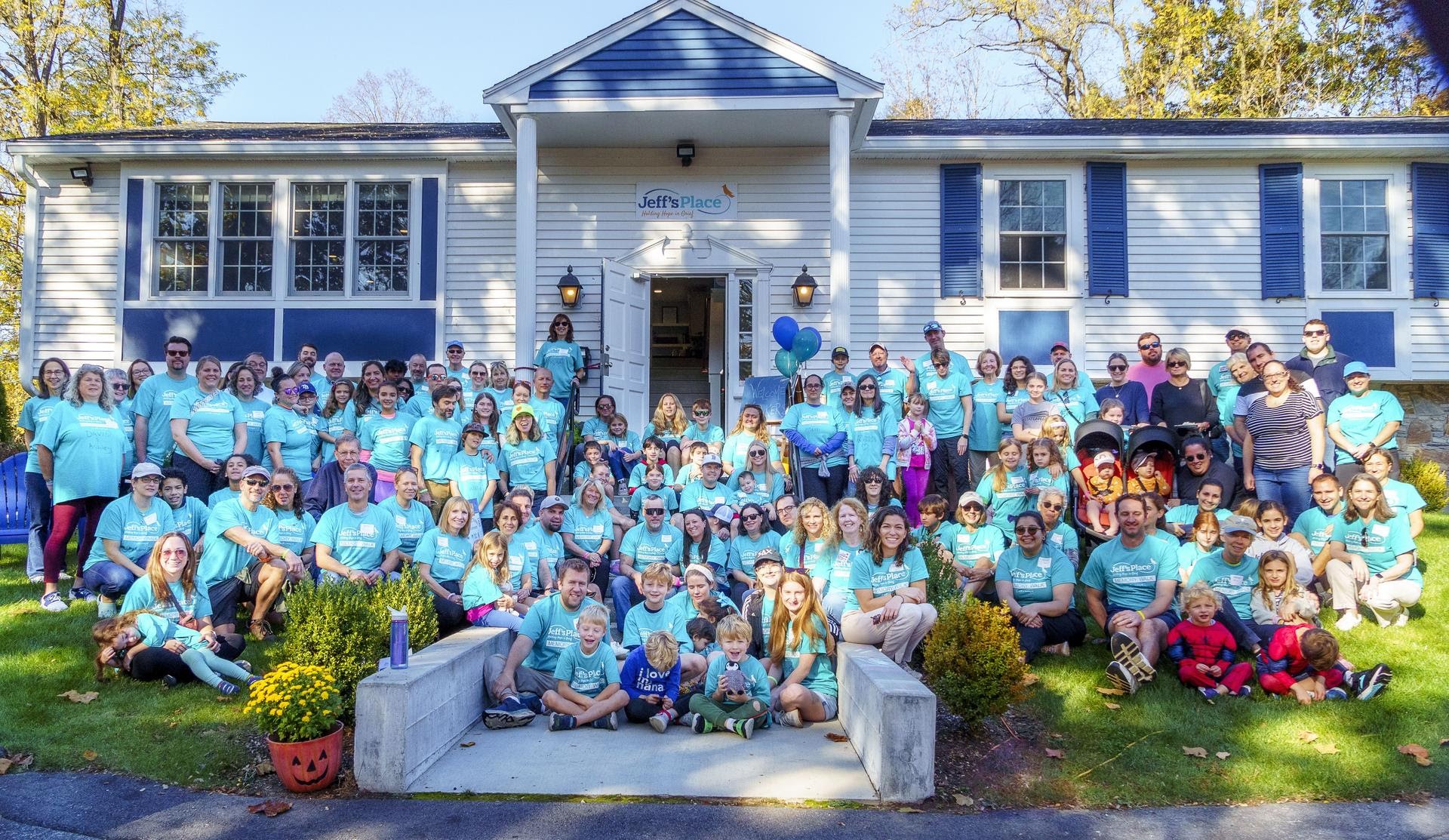
Jeff’s Place Offers Hope, Support, and Healing
“Our goals are to create connection, decrease isolation, and create a space where people can be candid and open.” – Robby Auld, Jeff’s Place Clinician
By Luke Schmaltz, VOICES Newsletter Editor
Jeff’s Place is a nonprofit in Framingham specializing in grief support for children, teens, and families. The organization was founded in 2010 by nationally recognized children’s grief leader Jenny Kaplan. Jeff’s Place is named after Kaplan’s brother, who died in a drowning accident just before his 18th birthday.
People affected by the death of a loved one can find community and support through recurring meetings based on age groups, type of loss, and specialized support needs. In-person offerings include a substance use loss group, a sibling / child loss group, after school groups, and more. Virtual meetings are held twice monthly and include a grandparent grief support groups and a young adult group.
Support for Substance Use Loss
Recently, VOICES spoke with Jeff’s Place clinician Robby Auld and other members of the facility’s clinical team about supporting those who have lost a loved one – especially to substance use-related causes.
VOICES: When your team is facilitating the Substance Use Loss Group, what are the primary concerns and obstacles for caregivers and parents?
Robby Auld: Primary concerns and obstacles for caregivers participating in our Substance Use Loss group are the complexity of their relationships with the person who died, and the heredity of addiction when considering their children and/or grandchildren. We find that providing this space for caregivers to speak openly helps to destigmatize and counter the taboo.
V: How does your Substance Use Loss Group help grieving caregivers address their grief and begin working through their grief?
RA: The Substance Use Loss Group gives caregivers a space to share and connect, to take off the emotional mask they wear in their everyday life. Due to stigma, caregivers don’t get the same extent of support after a substance-related death as others do when suffering a different kind of death loss. We have honest conversations about difficulties pre- and post-death, and about different types of drugs. We address guilt, blame, and shame.
V: How can the stigma associated with a substance use loss hinder a caregiver's grief journey?
RA: The stigma associated with a substance related death can lead caregivers to feel disenfranchised and invalidated in their grief journey. The lack of support can also be harmful.
V: What are some tips for bereaved caregivers to begin reaching out and connecting with community as they begin facing their grief?
RA: If you are a bereaved caregiver beginning to reach out, we encourage you to find the support that works for you. There are individual supports and group supports. It’s not a one size fits all. The most important thing is to know you are not alone, and to reach out when you’re ready.
Specialized Support for Young People
Additionally, VOICES posed questions to the Jeff’s Place Clinical Team at large about the challenges and concerns specific to working with grieving kids.
VOICES: How important is it to give grieving kids the complete story about the person who died? Is this the job/decision of the parent and/or caregiver?
Jeff’s Place Clinical Team: We always encourage honesty at a developmentally appropriate level. Even if there are gaps in what the children know, those gaps can be filled in later. Sharing about the person who died is a long-term process, not just one conversation. However, it’s crucial to tell the truth and not lie.
In our Substance Use Loss Group, we provide kids and caregivers with psychoeducation about the heredity of addiction. We are a preventative model to help break the cycle of addiction in families. We always encourage honesty at a developmentally appropriate level; even if there are gaps, they can be filled in later; no lying.
V: Is the level of disclosure about how the loved one died developmentally based? Are older children able to better process bad news or is this determined case by case?
JPCT: It’s certainly case by case. Depending on their maturity, their relationships, and their routines, among other factors, kids and teens have a different understanding of death and substance use. It’s always an individualized process, as each person is on their own unique grief journey.
V: How do the Substance Use Loss groups help bereaved children address their grief? How or in what format are the groups facilitated?
JPCT: Our groups provide an open, honest space with multiple levels of commonality. The kids who attend the Substance Use Loss group find relation in all having lost a caregiver due to substance use. They address their grief in conversation with each other and through reading books, art activities, and rituals (sharing pictures of their special person; sharing about some of their special person’s favorite things).
V: When is an appropriate time to offer support to a child grieving a substance use loss?
JPCT: Support is there when the time is right. As much as possible, it’s important to offer choices. When the child is ready, support is there. We don’t push grief work; we offer options.
V: How does stigma surrounding a substance-use-related loss affect grieving children?
JPCT: Stigma affects children grieving a substance related death in multiple ways. Sometimes kids are bullied at school or feel stigmatized by other kids’ reactions. There is a shift in family dynamics, which can lead to feelings of isolation and feeling “different” to not be part of a nuclear family. As with caregivers and all people affected by substance related deaths, there can be feelings of blame, shame, and guilt. Jeff’s Place offers the Substance Use Loss Group to help counter these stigmatizing experiences.
